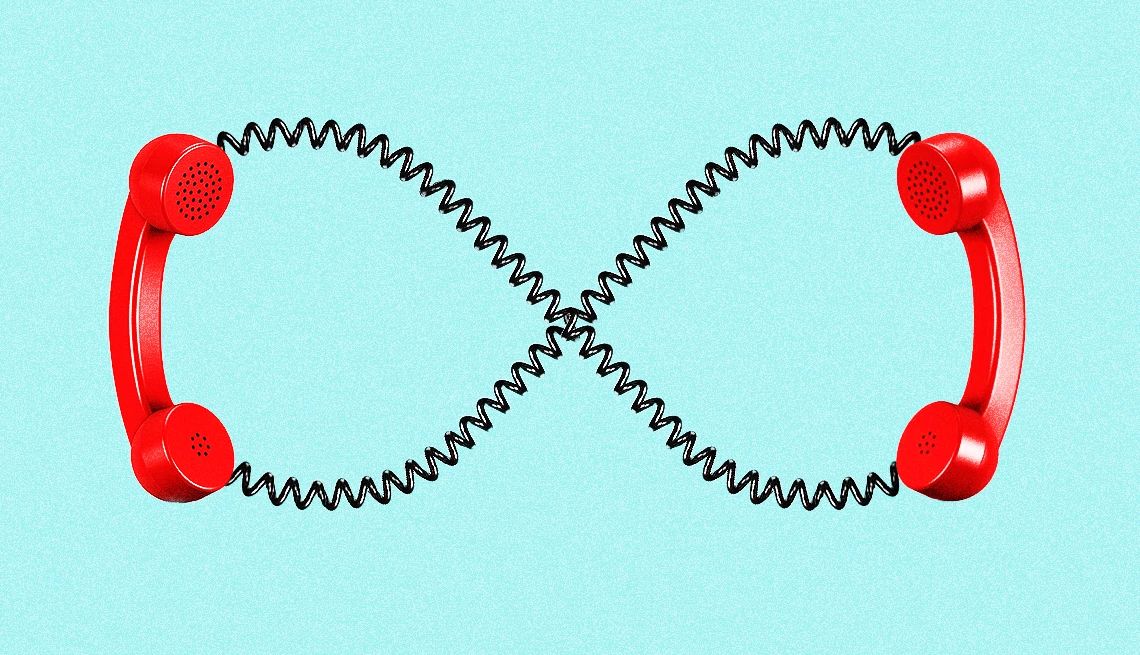Play all audios:
Recently, when I was visiting with a friend at my home, our conversation was interrupted by a phone ringing. Not a ringtone or song downloaded to my smartphone via an app. The noise
originated from a classic, old-fashioned phone, connected via an actual wire to a jack in the wall. My friend was startled and glanced at the ringing phone skeptically. “You still have one
of those?” I do still have a landline, which makes me one of an increasingly rare breed. Seventy-five percent of American adults live in a wireless-only household, while people 65 and older
are most likely to have a landline, according to a 2023 survey by the National Center for Health Statistics. It’s getting harder to maintain a landline connection. First, there’s the cost.
As the pool of landline customers shrinks, it seems like providers need to get as much money as they can from those of us who remain. As the bill continues to creep up, it becomes
increasingly tough to justify that monthly expense. Eventually, it may become impossible to hold on to a landline at any price. The Federal Communications Commission is phasing out
regulations requiring carriers to provide traditional legacy landline service through old-fashioned infrastructure that typically uses copper lines (known as Plain Old Telephone Service, or
POTS), in favor of newer alternatives such as Voice over Internet Protocol (VoIP), which lets you make voice calls using a broadband connection. Why do people like me even bother? What’s the
point of having a landline in a digital world? “In a world that seems to be constantly changing at breakneck speed, the reliable landline phone can represent a comforting symbol of
stability.” A STRONG NOSTALGIC APPEAL Most of us over a certain age have vivid childhood memories of stretching that twisty phone cord as far as it could go while still being attached to the
kitchen wall. Exchanging after-school gossip with friends in a whisper so nearby family members couldn’t overhear. Or if we were lucky enough to have a phone jack in our room, we’d lie on
the floor, cradling the receiver between our chin and shoulder, and chat with our best friend about nothing for hours. Back then, a landline phone was a staple of middle-class American life.
The whole family shared one, and it served as a sort of communication hub where everything from trivial gossip to tragic news was delivered to your home from the outside world. The landline
was such a ubiquitous presence that most of us took it for granted and didn’t give it much thought. Then, suddenly, this centerpiece of family life just … disappeared. In its place, we have
compact gadgets that can perform countless functions yet fit in our pocket. Sure, today’s high-tech models are sophisticated and convenient, but let’s face it, they’re also cold and
utilitarian. They don’t have the same emotional pull of those landlines. Imagine growing up in homes with one big refrigerator that everybody shared. Then in the future, people started
walking around with portable mini-fridges, and the central family fridge just vanished. That's how strange it feels to lose landlines.

